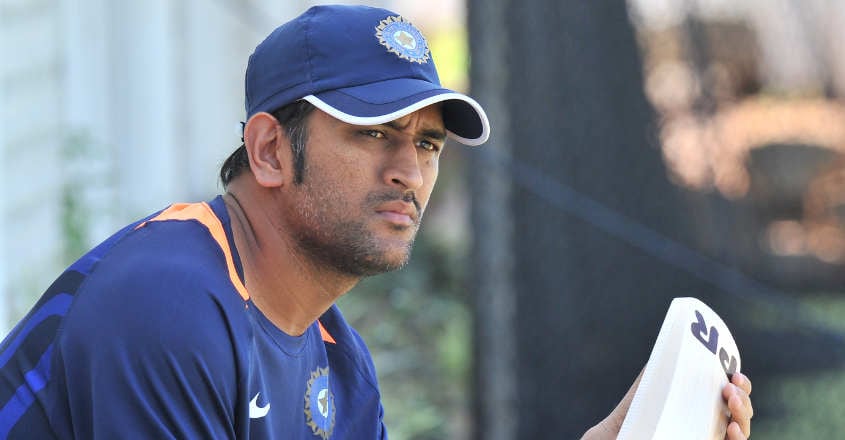Adelaide crowd's reaction a wake-up call for Kohli

Mail This Article
Virat Kohli has been one of the most successful overseas batsmen to have played at the Adelaide Oval. It was at this ground that he scored his first Test century in January, 2012; he followed this up during the tour in 2014 with a century in each innings. He has also hit a century in a One-Day International in 2015 World Cup opener against Pakistan at this ground. Before the start of the first Test of the ongoing series against Australia, Kohli had scored 624 runs at this ground in international matches with an awe inspiring strike rate of 89.
All this would indicate a special relationship between the batsman and the ground which is not unheard of in cricket. Any follower of the game in India would have heard about Dilip Vengsarkar’s penchant for scoring centuries in Test matches at Lord’s. Similarly Mohammad Azharuddin always managed to elevate his game when playing at the Eden Gardens in Kolkata. The crowds at these venues loved these cricketers and never failed to give a standing ovation whenever they stepped out of the pavilion to commence an innings.
Hence one would expect that spectators at the Adelaide Oval would have fond memories of the batting performances of Kohli and cheer him every time he walks to the middle with the bat in hand to take strike. But what happened on the afternoon of third day of the first Test was just the opposite. A section of the crowd booed the Indian skipper as he made his way to the middle after the dismissal of K L Rahul. This event made headlines in newspapers as it is seldom that captains of visiting teams get booed, and even more rare when they have a good track record at the ground. Hence the reason behind this strange behaviour of a group of fans at the Adelaide Oval deserves to be understood.
Kohli had been dismissed cheaply in the first innings when Usman Khawaja took a stunner at gully to send back the Indian captain. When Australians batted, Kohli was pumped up and at the forefront of all celebrations whenever a wicket fell. He also found opportunities for showing off his dancing skills to the crowd on the morning of the third day’s play when inclement weather disrupted the game. It was evident that Kohli’s gestures had got under the skin of the Aussies when their coach Justin Langer issued a statement that “if Australian players celebrated in the same manner as Kohli did at the fall of Aaron Finch’s wicket, they would be labelled as the worst blokes in the world”. Langer also made passing mention to the great passion shown and existence of the fine line, indicating that Aussies believed Kohli was guilty of crossing it.
In this age and time when the International Cricket Council appoints match referees to supervise the conduct of the players and other match officials and act as arbiters for fair and unfair play, it should be presumed that Kohli’s actions fell within the norms of acceptable behaviour, in the absence of any proceeding being initiated against him. However, it is certain that they did not amuse the crowd, who indicated their disapproval in the only manner they can, by resorting to boos. Though international sportspersons are used to such reactions from the fans and would not let them affect their performance, there are deeper issues involved here which merit serious discussion.
What should be the guidelines in place for behaviour in public for captain of the India cricket team. As this sport is, without doubt, the most popular one in the country and players are treated as role models and icons, it is the duty of these cricketers to behave in a manner that is worthy of emulation. Mansur Ali Khan Pataudi, who led India with elan through most of the 1960s and in a series in 1970s, believed in the old fashioned principle that there should be no display of emotions in public. Hence during his days at the helm, there would be little display of jubilation or grief on the field, but nevertheless the players went about their jobs with enthusiasm and energy. Though the captains who came after him like Bishan Singh Bedi, Sunil Gavaskar and Kapil Dev were more demonstrative and did not back off from a confrontation, they maintained a high level of personal dignity and decorum within the field of play. Azharuddin projected an image of total detachment and aloofness and appeared to be more keen on enjoying his favourite pastime of fielding while SachinTendulkar had too short a tenure at the top to leave behind any legacy in this area.
It was Sourav Ganguly who changed the rules of the game so far as deportment of Indian skipper in public was concerned. Ganguly was extremely passionate on the field and believed in displaying it without any inhibitions. He was piqued by the gesture of Andrew Flintoff who took off his shirt in celebration after the touring England side defeated India in the final One-Day International in Mumbai to level the series 3-3 in 2002. Hence when India pulled off a famous win in the final of the NatWest Series chasing a target of 326 against the hosts at Lord’s, Ganguly had no qualms about taking off his T-shirt and swirling it above his head like warrior a showing off his mace! This behaviour shocked the purists who felt that the holy turf at the most revered venue of the game had been desecrated by this gesture. Ganguly copped a fair bit of flak for this action, but true to his style took them on his chin without batting an eyelid. In doing so he also sent out the message that he was his own man and would not let himself be guided by other persons or events. However, in his autobiography, Ganguly expressed remorse over the incident stating that this was one action that he would like most to undo.
Mahendra Singh Dhoni displayed a sage like calm on the field, not letting anything, whether it was the high of the World Cup win or the pits of being whitewashed in two back to back Test series, affect his unflappable “Mr Cool” persona. It looked as if he was determined to follow to the hilt the old Pataudi dictum of displaying no emotions in public. He kept his interactions with the media to the bare minimum and went about his job without any fuss or furore. It was not that Dhoni did not face the ire of cricket fans despite his stupendous achievements, but his dignified demeanour and bearing ensured that it were the hecklers who felt the embarrassment for their actions.

Kohli has been known for wearing his heart on his sleeve and prone to being impetuous. This had landed him in a spot of bother many times in the past. While one can understand the passion with which he plays the game and the high levels of energy that he transmits, which automatically lifts the performance of the side, he should also know when to stop so as not to be accused of unseemly behaviour. The general impression is that Kohli tends to get carried away and ends up doing something that is not becoming of the prestige and propriety of the high position he holds.
It is easy to dismiss the words of Langer as an attempt by the former player to indulge in mind games, which the Aussies are extremely adept at. Kohli should do well to remember that the captain of the national team is required not only to lead the side to glory on the field of play, but also win friends off it. Kohli has so far been found wanting in the task of being the brand ambassador of the country and the sport. It would be in the best interests of Kohli, the skipper, and the national side in general that he realises this flaw and sets it right sooner than later. It is only rarely that the best batsman in the side also soaks in the pressures of leading the side and discharges the responsibilities with panache, as Kohli has been doing so admirably. It would be a sad day for Indian cricket if Kohli fails to evolve into a great leader of men on account of his refusal to grow out of his present mindset.
(The author is a former international umpire and a senior bureaucrat)


